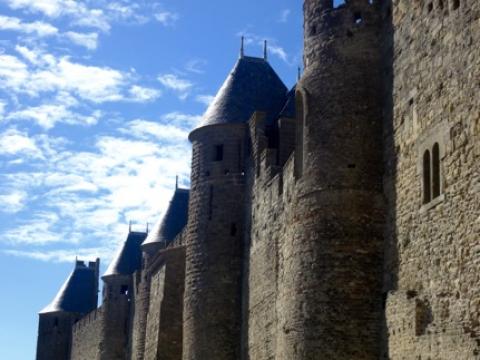Travel Writing is a genre in which younger writers excel: for you can see a new place, for the first time, only once. Older writers find it more difficult to convey the freshness of a new encounter; quite often travel writers remember back to, or revisit, crucial scenes from their youth. Spring break 2018 thus offers a great opportunity: to travel somewhere new, and to notice and record exceptional details, moments, encounters. Things that might be a nuisance in everyday life (travel delays and misdirections, food surprises, strange meetings on trains) can turn to gold in travel narrative; it all counts. This may also be one of your last opportunities to travel while within Penn structure; all too soon you will be travelling on your own.
In the first part of the course we will read work by some fine writers who travel, such as Jane Smiley and Dave Eggers. We'll read only short pieces, since you will be shaping to write a shortish piece. You'll then begin to prepare for travel, then travel, then write your piece and workshop it: no midterm or final.
Some Penn students have chosen to travel primarily to a beach, and then noticed that the beach has a country attached: Nicaragua, Vietnam. Others have shot for places more challenging and exotic: Iceland, Milan, Uruguay. A few have opted to go home for Spring break, trying to visit "home" as if it were a foreign place, objectively viewed. Some have stayed in Philadelphia, attempting to see and experience it as if never seen before. All these strategies are good: it's what happens, what you notice, and how you tell it.
Travel is now a massive industry, world wide. Huge cruise ships circle around the globe, picking up and putting down passengers every week or ten days. Is this travel? What are the ecological consequences of all this? How come Airbnb now has bigger annual turnover, over $2 billion, than any American hotel chain? Can one travel innocently or, at least, responsibly, leaving small footprints?
Here is how our class will likely unfold:
Assignment 1: you will be asked to answer the question "how I got to this place," in 500 words. You may answer this question any way you like; there is no wrong answer. This assignment is Pass/Pass and will give me the opportunity to spot and address any writing glitches before formal assessment begins.
Assignment 2: a critical evaluation of a specific travel writing essay (4 pages). Please be concrete and specific, referring to the text, rather than giving general impressions. What works well? What is problematic? Is the title well chosen? Does the final sentence or paragraph work? Etc. The specific travel text for analysis will be assigned later, but will come from one of your two anthologies of writing.
Assignment 3: "Crossing Walnut Street Bridge." A brief outing or adventure into the world beyond the Penn campus. This is best done alone. We will prepare for this in class, and suggestions for possible destinations can be made (e.g. Reading Terminal Market, the Mutter Museum, the Mummer's Museum ...). This will be your first effort at "travel writing" (5 pages).
Assignment 4: "Plans for Spring break travel." An outline of your plans, with details of itinerary, possible places to visit, possible challenges and obstacles-- all to receive feedback. Useful websites may be referenced. Pass/ Pass. No minimum/ maximum page limit.
Assignment 5: "Travel Writing." Your major piece of writing, to be drafted and workshopped in class, then edited and finally submitted at the end of the semester. About 8-12 pages, although length is not crucial: as you will see, some of the very best essays we will read are short, and economy of expression is crucial. Most of your "revision" will be cutting and compressing an excess of material. And seeking to absolutely nail that final paragraph, that last sentence.
Assessment: Assignment 1, Pass/Pass; assignment 2, 20% of grade; assignment 3, 20% of grade; assignment 4, Pass/ Pass; assignment 5, 50% of grade; class participation, 10%. No incompletes. No midterm or final.

 Department of English
Department of English
